I’ve always found that digestion plays a huge role in overall health.
Making small tweaks to my diet can really help keep things running smoothly.

When I started paying attention to what I was eating, I realized how simple adjustments could make a big difference.
From choosing the right foods to staying mindful of my eating habits, these changes have been easy to implement and have had a lasting impact on my well-being.
1) Swap white rice for quinoa
I’ve found that swapping white rice for quinoa has made a noticeable difference in my meals.
Quinoa is a whole grain that’s packed with nutrients and has a slightly nutty flavor.
It adds a nice texture to dishes I enjoy.
One of the best parts about quinoa is that it’s gluten-free.
This makes it a fantastic option for anyone looking to cut down on gluten or just try something new.
Plus, it cooks quickly, making it easy to use on busy days.
Quinoa is also high in protein compared to white rice, which helps keep me feeling fuller longer.
It also has a lower glycemic index, which means it won’t spike my blood sugar as much.
To prepare it, I rinse the grains first to remove any bitterness, then cook it like rice, using a 1:2 ratio of quinoa to water.
In about 15 minutes, I have a fluffy side dish that pairs well with a variety of meals.
It’s a simple change that really supports my digestion and overall health.
2) Enjoy a cup of ginger tea
I really enjoy sipping on ginger tea, especially when my digestion needs a little boost.
Ginger has a long history of helping with digestive issues, so it’s become a go-to for me.
I often brew fresh ginger slices in hot water, which releases that spicy aroma that’s just comforting.
It’s not only delicious but also soothing on the stomach.
For added flavor, I sometimes toss in a squeeze of lemon or a drizzle of honey.
This makes it a tasty treat while still being beneficial.
Ginger tea is known to relieve bloating and nausea, which is a win in my book.
Plus, it can be a great way to hydrate while enjoying a warm beverage.
I recommend giving it a try after meals.
I find it helps me feel lighter and more comfortable.
Making ginger tea is simple, and the moments spent brewing are always worth it.
3) Choose Greek yogurt over regular
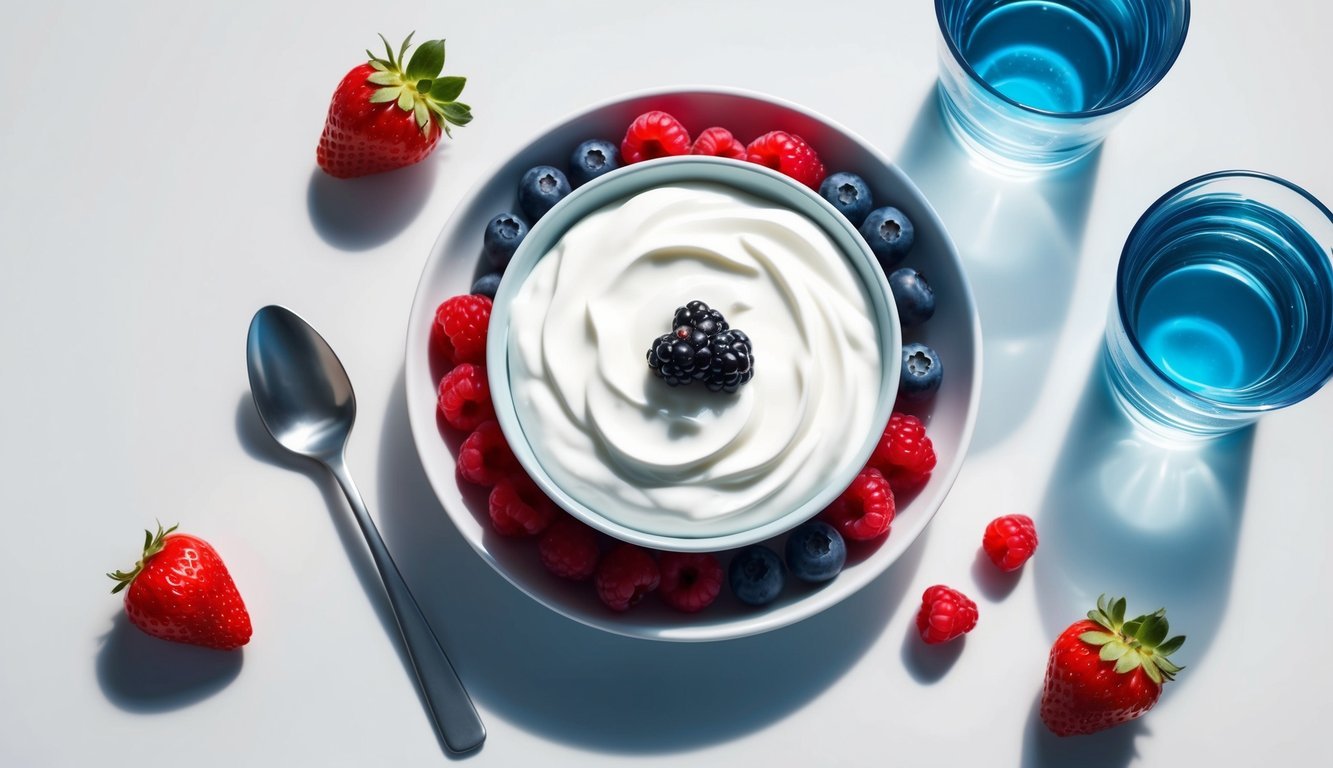
When it comes to yogurt, I prefer Greek yogurt for several reasons.
It’s thicker and creamier, which makes it a tasty addition to snacks or breakfast.
Greek yogurt typically has more protein than regular yogurt, making it a great option for keeping me full longer.
This extra protein can help with muscle maintenance as well.
Calcium is essential for bone health, and regular yogurt offers more of it compared to Greek.
Still, the difference isn’t huge, so I focus on the higher protein content of Greek yogurt.
I also appreciate that Greek yogurt usually has less sugar.
This helps me manage my sugar intake, especially when I’m watching what I eat.
Another benefit is that many Greek yogurts contain probiotics.
These friendly bacteria support gut health and digestion, which is what I’m all about.
Overall, choosing Greek yogurt has turned out to be a simple adjustment in my diet that offers multiple benefits while still being enjoyable.
4) Add flaxseeds to your morning smoothie
Adding flaxseeds to my morning smoothie is one of the easiest diet changes I’ve made for better digestion.
These tiny seeds are packed with fiber, which can help keep things moving through my digestive system.
I usually incorporate ground flaxseeds since they’re easier for my body to digest.
I start with one to two tablespoons, blending them into the smoothie for a smooth texture.
The nutty flavor complements my favorite fruits really well.
I often mix them with bananas, spinach, and berries for a refreshing kick.
Flaxseeds also contain healthy omega-3 fatty acids, which support overall wellness.
They can help reduce inflammation in the gut, making them a great addition to my morning routine.
Storing ground flaxseeds in the fridge keeps them fresh and ready to use whenever I need a boost.
So, next time I blend a smoothie, I make sure to add flaxseeds for a nutrient-rich start to my day.
5) Opt for sourdough bread instead of whole wheat

I’ve found that choosing sourdough bread can be a game changer for digestion.
Unlike regular whole wheat, sourdough undergoes fermentation, which breaks down gluten and makes it easier on the stomach.
The fermentation process also boosts the bread’s resistant starch content.
This means my body has a better chance of processing it without discomfort.
Sourdough has a lower glycemic index compared to many other breads.
This helps in stabilizing blood sugar levels, keeping my energy steady throughout the day.
Plus, sourdough is rich in beneficial nutrients.
It’s packed with fiber and B vitamins that support my metabolism and digestion.
I enjoy the tangy flavor and chewy texture too.
Swapping out whole wheat for sourdough has definitely made my meals more enjoyable while supporting my digestive health.
6) Replace dairy milk with almond milk
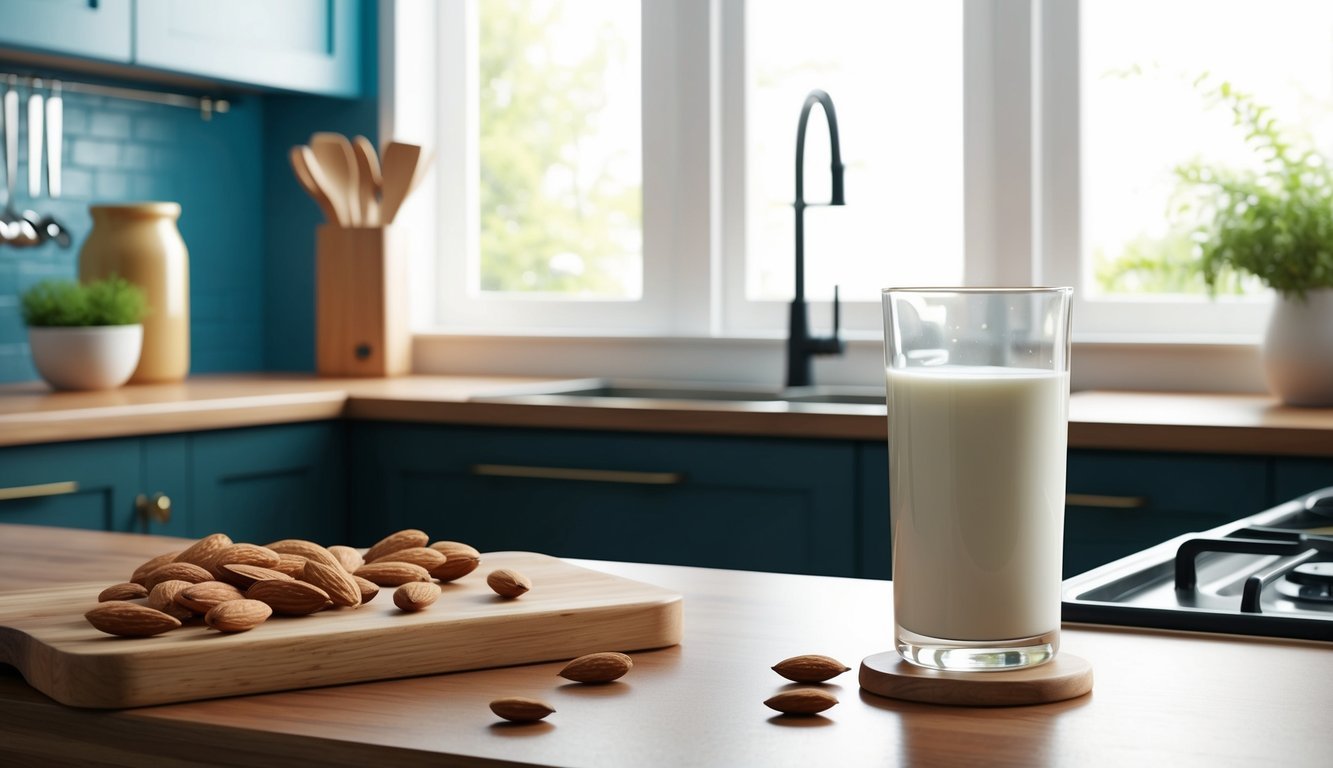
Switching from dairy milk to almond milk has been a game changer for my digestion.
Almond milk is lower in calories and carbs, which can lead to less bloating.
I’ve found that unsweetened almond milk doesn’t spike my blood sugar like some other options.
This is great for keeping my energy steady throughout the day.
Almond milk is also rich in vitamin E and magnesium, which can support overall health.
Plus, it’s a source of riboflavin, which is good for energy metabolism.
I enjoy it in my smoothies, cereal, or just as a refreshing drink on its own.
With so many brands available, I can easily find one that fits my taste.
Making this switch has made my meals feel lighter, and it’s an easy change to incorporate into my daily routine.
If you’re looking for a dairy alternative, almond milk might be worth a try.
7) Include sauerkraut in salads or sandwiches
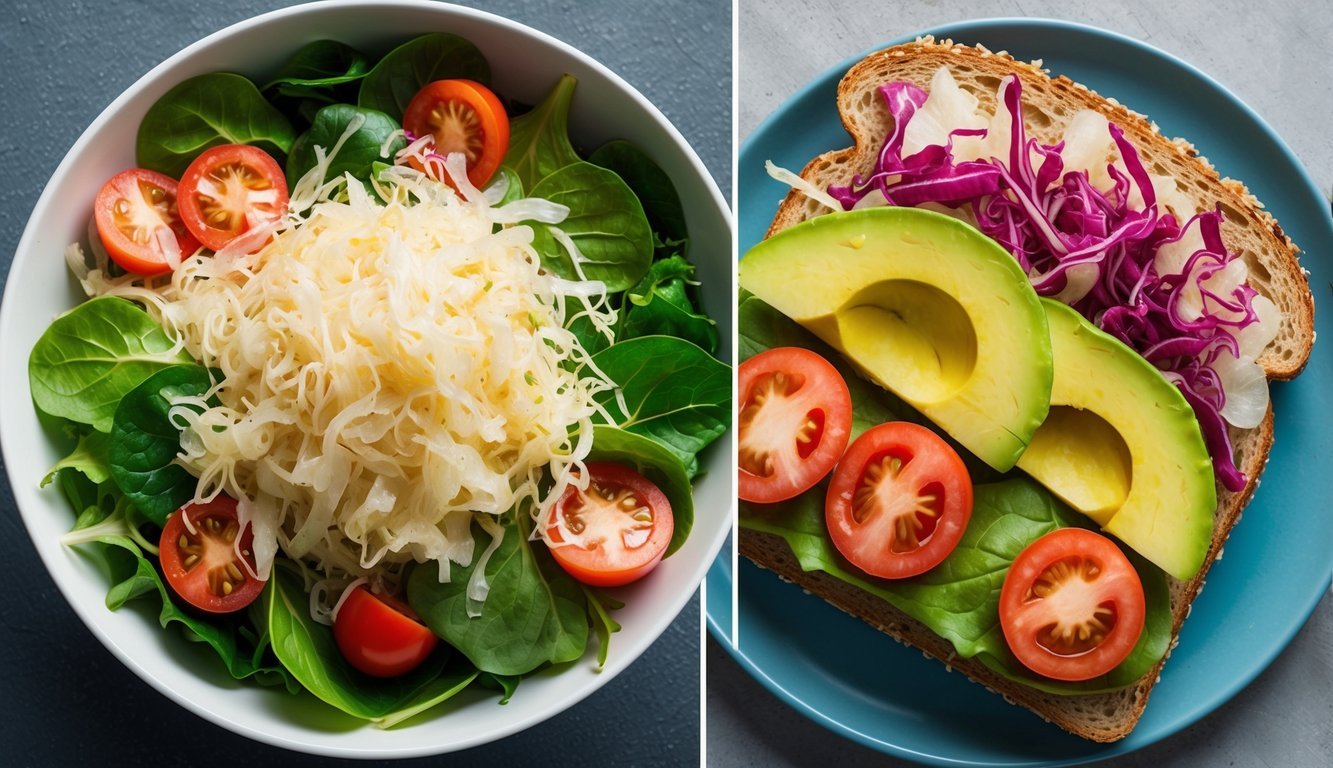
I love adding sauerkraut to my meals for an extra boost of flavor and nutrition.
It’s not only a great way to spice up a salad but also offers digestive benefits.
When I toss sauerkraut into a salad, it adds a crunchy texture and a tangy taste.
I often mix it with greens, diced vegetables, and a light dressing for a refreshing side dish.
The probiotics in sauerkraut can also support gut health.
For sandwiches, sauerkraut is a fantastic addition.
It pairs well with meats like corned beef or turkey.
A classic choice for me is a Reuben sandwich, where the sauerkraut perfectly complements the other ingredients.
I sometimes get creative by using it on avocado toast or in wraps.
The sharpness of the sauerkraut balances the creamy ingredients nicely.
It’s a simple way to enhance my meals while providing essential nutrients like fiber and Vitamin C.
Incorporating sauerkraut into my diet is easy, and it honestly makes my meals more enjoyable.
8) Snack on apple slices with almond butter

I love snacking on apple slices with almond butter.
It’s a simple and delicious way to support healthy digestion.
Apples are rich in fiber, which can help keep everything moving smoothly in my digestive system.
When I slice up a crisp apple, I often grab a tablespoon of almond butter.
This nut butter not only adds healthy fats, but it also offers protein to keep me satisfied.
The combination of sweet apple and creamy almond butter is hard to resist.
For a little extra fun, I like to sprinkle some cinnamon on top.
It adds a warm flavor that complements both the apple and the almond butter.
Sometimes, I even add toppings like shredded coconut or raw cacao nibs for a bit of crunch.
This snack is perfect for when I’m on the go or just need a quick pick-me-up.
It’s easy to prepare and filled with nutrients that are kind to my gut.
Plus, it feels indulgent without being unhealthy, making it one of my go-to choices.
9) Drink kefir as a probiotic boost
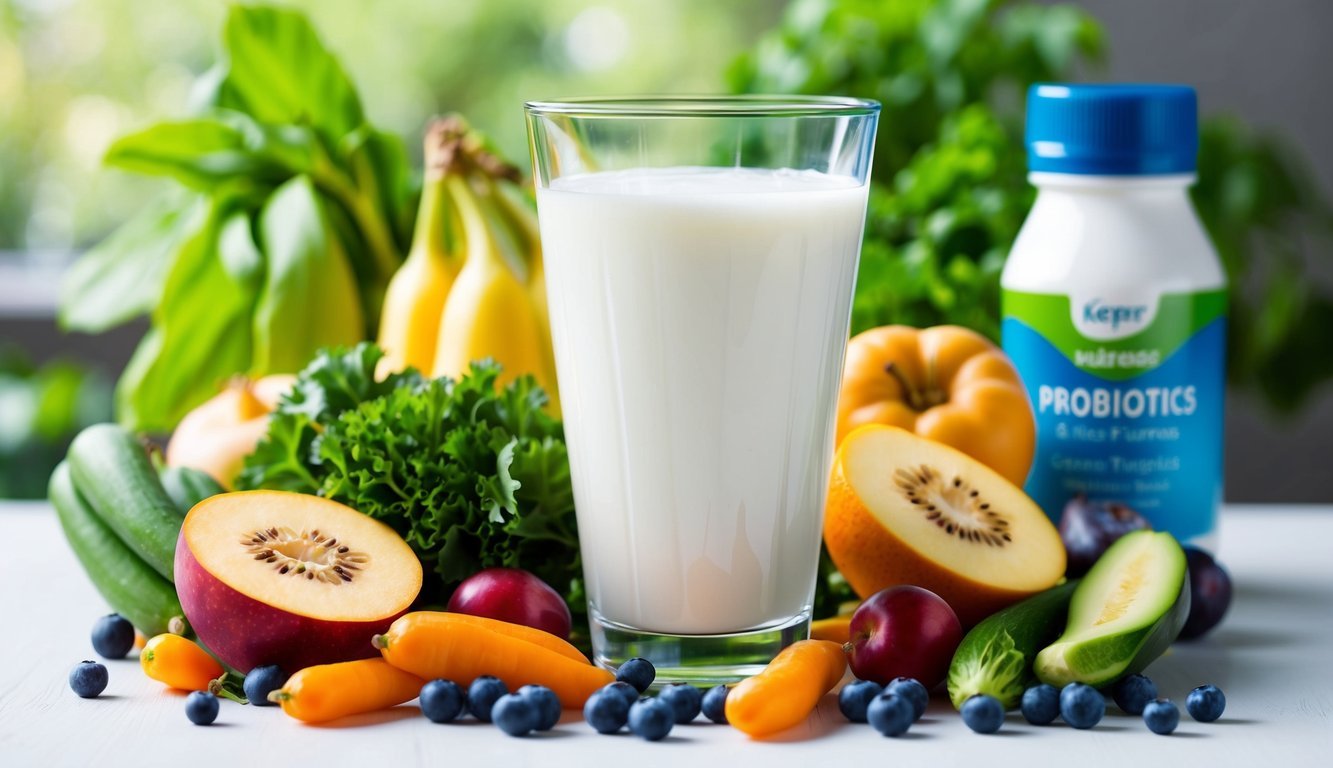
I’ve found that adding kefir to my diet makes a noticeable difference in my gut health.
This drink is packed with probiotics, which are beneficial bacteria that help keep my digestive system balanced.
When I consume kefir regularly, I notice less bloating and fewer digestive issues.
It seems to help with nutrient absorption, making me feel more energized.
Kefir also supports my immune system.
Studies suggest it can help combat harmful bacteria and even aid in faster wound healing.
I appreciate how versatile kefir is.
I can enjoy it on its own or mix it into smoothies and recipes.
Plus, it’s a tasty way to boost my intake of essential vitamins and minerals.
Incorporating kefir into my routine has been an easy and enjoyable way to enhance my digestion and overall well-being.
10) Use olive oil in place of butter
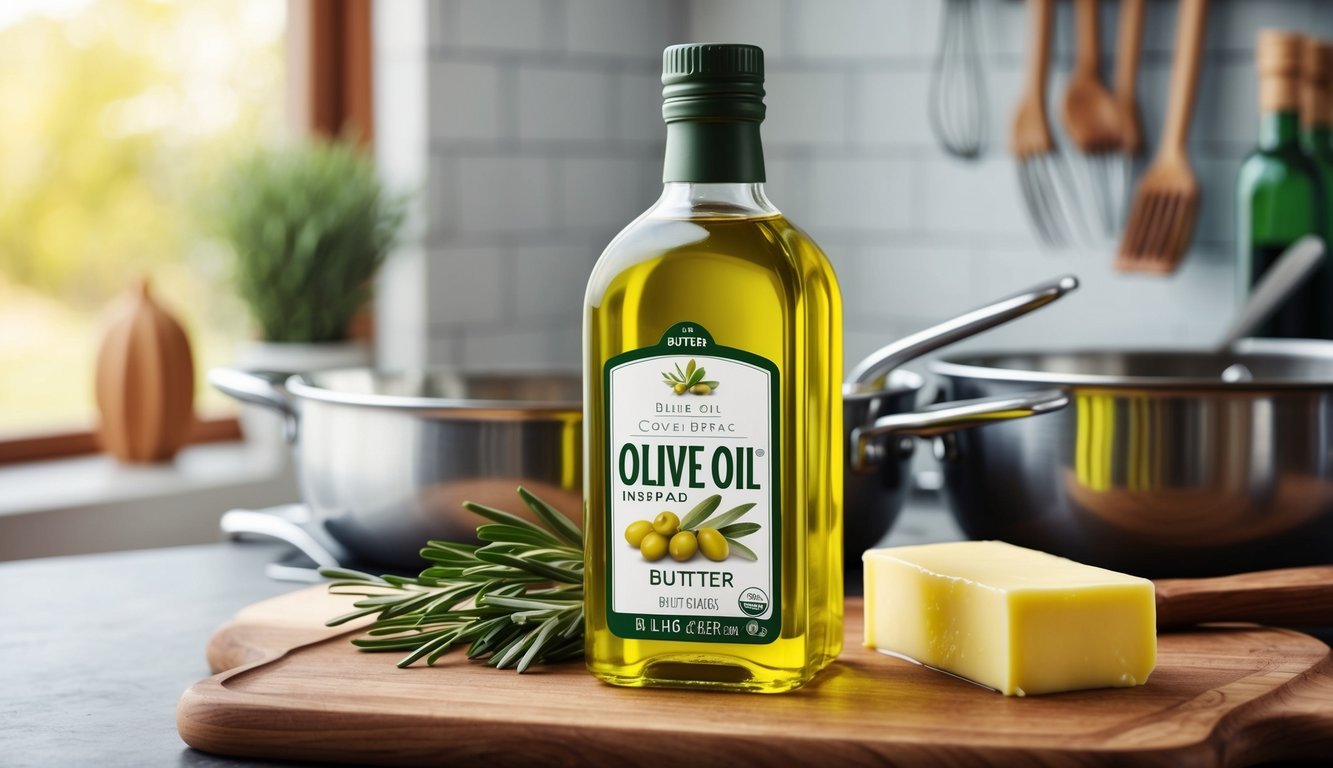
I’ve found that using olive oil instead of butter can be a simple yet effective change for better digestion.
Olive oil is rich in monounsaturated fats, which are easier on the stomach compared to saturated fats found in butter.
When I cook, I often reach for olive oil because it adds a delicious flavor without the heaviness of butter.
This switch can also help reduce inflammation, which is beneficial for digestive health.
If I’m baking, I usually follow a 3:4 ratio.
For instance, if a recipe calls for one cup of butter, I’ll use three-quarters of a cup of olive oil.
This makes transitioning to olive oil pretty straightforward.
It’s important to choose a high-quality extra virgin olive oil for the best flavor and health benefits.
The smoke point of olive oil is higher than that of butter, so I can use it for various cooking methods without worrying about burning.
Swapping butter for olive oil can be a breeze, and I enjoy knowing I’m making a heart-healthier choice while supporting my digestion.
Understanding Digestive Health
I find it important to understand how our digestive system operates and the common issues that can disrupt it.
Digestion is a complex process, and knowing the basics helps me make better dietary choices to support my gut health.
How Digestion Works
Digestion begins in the mouth, where enzymes in saliva start breaking down food.
Once swallowed, food travels down the esophagus to the stomach.
Here, strong acids continue the breakdown process.
The small intestine plays a critical role, as it is where most nutrients are absorbed.
The pancreas and liver send enzymes and bile to aid in digestion.
By the time food reaches the large intestine, it’s primarily waste.
Proper function in all these stages ensures that I obtain the nutrients needed for overall health.
Common Digestive Issues
I’ve encountered various digestive issues, such as bloating, gas, and constipation.
These problems can arise from poor diet, dehydration, or a lack of fiber.
Some common sources of discomfort include:
- Irritable Bowel Syndrome (IBS): Symptoms can range from bloating to changes in bowel habits.
- Gastroesophageal reflux disease (GERD): This leads to acid reflux and heartburn.
- Food intolerances: Some people struggle with lactose or gluten, causing digestive distress.
Being aware of these issues helps me identify the causes and take steps towards better digestive health.
The Connection Between Diet and Digestion
Nutrition plays a crucial role in how efficiently our digestive system operates.
Understanding how specific components of our diet influence digestion can help guide choices that promote gut health.
Consuming fiber-rich foods, such as fruits, vegetables, and whole grains, can support regular bowel movements and foster a healthy gut microbiome.
Additionally, probiotics and fermented foods introduce beneficial bacteria that aid in digestion and improve gut health naturally.
Staying hydrated and minimizing processed foods can further enhance digestive efficiency and overall well-being.
Role of Fiber in Digestion
Fiber is a powerhouse for digestive health.
It comes in two types: soluble and insoluble.
Soluble fiber, found in oats and beans, helps regulate blood sugar and lowers cholesterol.
Meanwhile, insoluble fiber, present in whole grains and vegetables, adds bulk to stool, making it easier to pass.
Including a variety of fiber-rich foods in my diet ensures that I support the healthy bacteria in my gut.
These bacteria thrive on fiber, producing short-chain fatty acids that are essential for gut health.
If I maintain a diet low in fiber, I may experience issues like constipation and bloating.
To add more fiber to my meals, I focus on incorporating foods like:
- Oats
- Fruits (like apples and berries)
- Vegetables (such as carrots and broccoli)
- Legumes (like lentils and chickpeas)
Impact of Hydration on Digestive Health
Staying hydrated is equally important for my digestive system.
Water helps break down food, allowing nutrients to be absorbed efficiently.
Adequate hydration also contributes to softer stools, which can prevent constipation.
When I drink enough fluids, my digestive tract functions optimally.
Insufficient water intake can lead to discomfort and sluggish digestion.
I often aim for at least eight glasses of water a day, adjusting based on activity level and climate.
In addition to plain water, I also find that herbal teas, broths, and fruits and vegetables (high in water content) help me stay hydrated while enjoying my meals.
Making hydration a priority supports not just digestion but my overall well-being.

